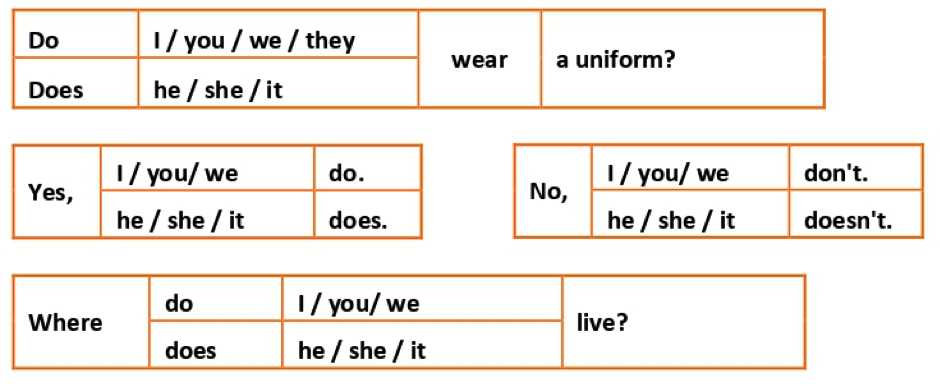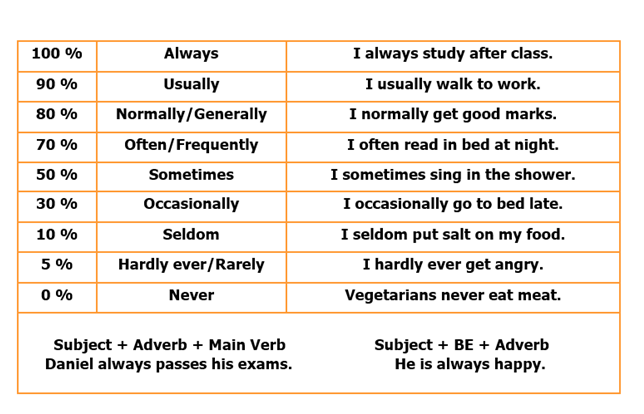Learn
USE:
📎 We use the present simple tense to talk about:
• Facts (things that are always or currently true).
Example: Over 150,000 foreign students live and study in the UK.
• Repeated events and routines.
Example: I have a Biology class every Wednesday at 9 a.m. It never starts on time!
• Likes/dislikes and opinions.
Example: British people like meeting people from other countries. I don’t think it’s true.
🤓 Third person (he/she/it) -s: key spelling rules:
You usually add -s: live → lives
⚠️ However, there are exceptions:
1. Add -es to verbs ending in -ch, -o, -s, -ss, -sh, and -x:
teach → teaches, go → goes
2. Verbs ending in consonant + y → change the -y to -i:
fly → flies
3. Verbs ending in vowel + y → do NOT change the ending:
buy → buys NOT buies
4. Have → has
FORM:
Affirmative

Negative

We usually use the contracted form don’t / doesn’t when speaking and writing informally.
Questions and short answers

🤓 Adverbs of frequency
We usually use Adverbs of frequency with the Simple Present. Adverbs of frequency help us describe how often we do something.
Here are the most common adverbs of frequency.


